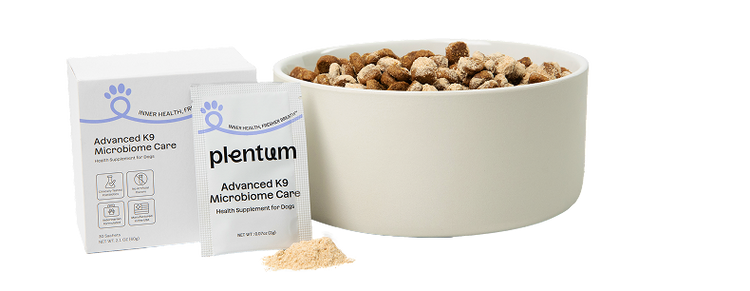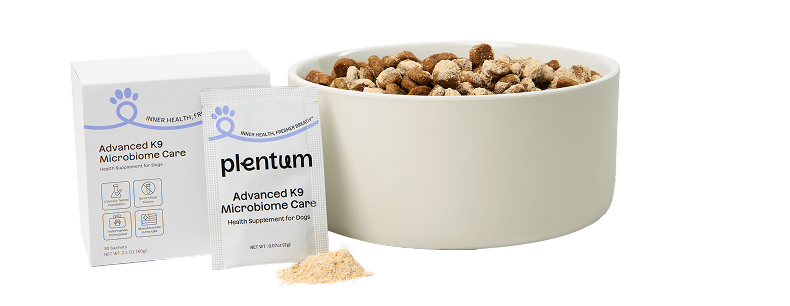
Why Omega-3 Fatty Acids Matter for Senior Dogs
Aging brings a host of physiological changes from joint wear to cognitive decline and immune system shifts. Omega-3 fatty acids are essential fats that senior dogs can’t produce on their own, making dietary intake crucial. Two primary forms EPA and DHA are especially valuable for aging dogs, offering targeted benefits that support senior health on the inside and out.
Key Benefits of Omega-3s for Senior Dogs

-
Joint Health and Mobility
Arthritis and reduced mobility are common in older dogs. Omega-3s possess natural anti-inflammatory properties that can help reduce joint pain and stiffness, improving overall mobility. Clinical research shows that supplementation can lead to tangible improvements in comfort and daily activity levels for senior dogs living with osteoarthritis1 2. -
Cognitive Health
Just as in humans, cognitive dysfunction can affect senior dogs, leading to confusion or changes in behavior. Studies reveal that Omega-3 supplementation supports brain health, slows age-associated cognitive decline, improves memory, and helps dogs maintain a higher quality of life as they age3 4. -
Heart Health
Cardiac disease risk increases with age. EPA and DHA have been shown to help regulate heart rhythm, improve blood lipid profiles, and reduce markers of inflammation—all of which are key for cardiovascular health in senior pets 1 5. -
Skin, Coat, and Immune System Support
Senior dogs may experience dry skin, thinning coats, and compromised immunity. Omega-3s help maintain skin hydration, reduce shedding, and enhance the coat’s shine. They also play a role in modulating immune responses and reducing the severity of allergic reactions or dermatitis 1 6. -
Gut and Metabolic Health
Research suggests that diets rich in Omega-3s can positively influence the gut microbiome, helping reduce levels of harmful metabolites and fostering a healthier digestive system—particularly relevant for senior dogs susceptible to metabolic dysfunction7 8.
Finding the Right Dosage for Senior Dogs
Omega-3 needs can vary based on health status, body weight, and the presence of specific health conditions. Overdosing can risk gastrointestinal upset or bleeding disorders, so careful dosing matters. Dosage is often specified in milligrams (mg) of combined EPA and DHA per kilogram (kg) of body weight.
Below is a dosage based on peer-reviewed research and current veterinary recommendations 1

Tip: Always consult your veterinarian before starting any supplementation. Senior dogs with specific health conditions may need personalized adjustments.
How to Supplement Omega-3s for Senior Dogs
- Start Slowly: Gradually introduce Omega-3 for dogs over several days to reduce the risk of digestive upset.
- Choose Pure Products: Select high-quality supplements free of heavy metals and contaminants.
- Monitor Omega-6 Intake: Aim for a low omega-6:omega-3 ratio (ideally around 5:1 or lower) for the best anti-inflammatory effects 1.
Potential Side Effects and Precautions
Omega-3s are generally safe when dosed appropriately, but over-supplementation can lead to:
- Gastrointestinal disturbance (loose stool, vomiting)
- Slow wound healing
- Uncommon: excessive bleeding in predisposed dogs
Always stick to recommended dosages and follow up with your veterinarian, especially if your dog is taking medication (e.g., blood thinners).
Real Results: What Science Says
Recent studies show that dogs receiving Omega-3 supplements experience3 12 10:
- Reduced pain and improved quality of life in osteoarthritis.
- Enhanced skin and coat condition.
- Lower levels of inflammatory markers.
- Improved cognitive function and memory.
- Potential cardioprotective effects.
Marine sources—such as krill oil or fish oil—lead to significantly higher blood Omega-3 levels compared to plant-based sources9 10 11.
Choosing a Quality Supplement
When selecting an Omega-3 supplement, it's important to choose one formulated with pure, sustainably sourced marine oils rich in EPA and DHA. This ensures your dog receives the clinically-researched doses needed for optimal aging.
Conclusion
Omega-3 fatty acids offer broad, science-backed benefits for senior dogs—from soothing stiff joints to supporting cognition and heart health. By following the dosing chart above and choosing high-quality Omega-3 supplements, you can help your senior dog enjoy a healthier, more vibrant life for years to come.
Consult your veterinarian for individual dosing advice and choose a trusted source for premium canine nutrition.





